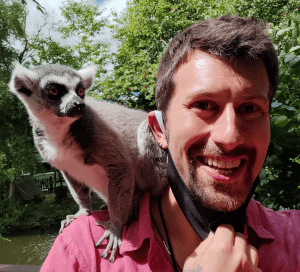
Examining the Link between Gut Microbiota and Cognition in Two Distinct Models
4 April 2023 (Tuesday), 4pm
AS4-02-08
Abstract:
There is mounting evidence that intestinal microbiota communities and their genes (the gut microbiome) influence how animals behave and interact with their environment through the microbiome-gut-brain-axis. It is clear from manipulative experiments in lab rodents that alterations to their gut microbiota generate marked changes in cognitive and behavioral phenotypes including learning, memory, social behaviour and anxiety. However, one of the major challenges in this field of research is the need for non-murine models that can better represent the complexity of the human microbiome. Mice have been extensively used in gut microbiota research, but they do not fully capture the diversity and functionality of the human gut microbiome. In this seminar, I will be outlining my plans for an initial exploration of two organism models to examine the link between gut microbiota and cognitive and behavioral phenotypes, either in the lab or the field.
The first model organism is the tree shrew, a small, arboreal mammal, which shares a close evolutionary relationship with primates, and thus offers an excellent candidate for microbiota research. Notably, tree shrews have a strikingly similar gut microbial community and gut-brain axis to humans. In addition, a tree shrew model also has the advantage of being cost-effective and easily accessible for laboratory settings. This makes it a valuable alternative to non-human primate lab testing, which can be expensive and challenging.
The second model organism of interest is the long-tailed macaque urban population of Singapore. Long-tailed macaques in Singapore have adapted to urbanization and are now living in close proximity to humans, often feeding on human food waste. Such an urbanized diet has been shown to have profound effects on the gut microbiota of animals, including primates, which may have implications for cognitive and behavioral phenotypes. This population can provide a unique opportunity to study the effects of urbanization on the gut microbiota and cognitive function through the gut-brain axis in a fully naturalistic setting.

